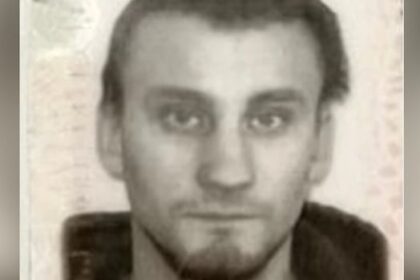Canada·First PersonGregory Walters knew that marriage and family were two things he’d have to say goodbye to as possibilities when he came out as gay in the 1980s. Even though the law changed to allow same-sex couples to get married, Walters still didn’t feel connected to it as a right. But love changed that all for him. As a gay man, I long rejected this societal expectation because it hadn’t been available growing upGregory Walters · for CBC First Person · Posted: Nov 10, 2025 4:00 AM EST | Last Updated: 4 hours agoListen to this articleEstimated 5 minutesThe audio version of this article is generated by text-to-speech, a technology based on artificial intelligence.Gregory Walters, left, knew that marriage and family were two things that wouldn’t be possibilities when he came out as gay in the 1980s. Today, he’s realized he doesn’t want to put a limit on his love and relationship with Stephen Busto. (Gregory Walters)This First Person column is written by Gregory Walters, who lives in Vancouver. For more information about CBC’s First Person stories, please see the FAQ. As a child, I listened to my share of happily-ever-after stories. Pigs outsmarting a wolf. Sam raving about green eggs. A prince and a princess finding love. The prince stories caught my attention, but I knew better than to hope for a princess. Something felt off.Throughout adolescence, I resisted any deep dive into what that was. I was behind my friends in terms of dating. I told my roommate in university I chose to be celibate to focus on my studies. The payoff was great — I graduated summa cum laude — but I missed out on a great deal, too.Only after university did I dare admit to myself that I was gay. It affected my family connections, my relationship with the church and my vision of happily ever after. Being gay in 1985, marriage was not an option. As a school teacher, I worked under an implicit “don’t ask, don’t tell” atmosphere. I settled for less, because less was on offer. Quite frankly, with the AIDS crisis, I had graver concerns on my mind. In the 1990s, I fell in love once, then a second time, but marriage never came up. Why would it? I protested regarding discrimination in employment and housing. Any broader rights seemed too much of a reach. Hopes for marriage were replaced by fears I might die from AIDS before the age of 40.The first time I heard a gay person say gay marriage should be a right, I thought he was being ridiculously provocative. Talk of marriage was a needless distraction from what we were fighting for at that time.As a teenager, Walters felt different from his friends. But it wasn’t until his 20s that he admitted to himself that he was gay. (Submitted by Gregory Walters)Over the years, I attended several weddings for straight friends. I was happy for them, but I was critical of the spectacle of the ceremony and reception. In part, I figured it was because I’m an extreme introvert. Too much everything. Still, I think I felt some resentment as well. Why was I flying across the country for celebrations that zero chance of being part of my own life? Why was I buying another gravy boat or place setting?Later, my long-term partner and I attended a civil union ceremony of two gay men we knew. I bought them a waffle iron. I sat in a pew of an Anglican church. But the ceremony felt like a poor stepchild to the real thing. It was an alternative to placate the gay community. No wedding certificate involved.When marriage became a legal right for same-sex couples in Canada in 2005, I was 40. WATCH | 20th anniversary of the legalization of same sex marriages in Canada:‘We can’t stop there’: Marking 20 years since same-sex marriage was legalizedTwenty years after same-sex marriage became legal in Canada, couples who fought for that right and other advocates are celebrating the milestone while also acknowledging that there’s a long way to go before reaching full equality.I celebrated for the newly enshrined right, but it felt like an option for younger generations. I’d long ago come to terms with the fact I wouldn’t be the marrying kind. Part of coming to accept myself as a gay person was accepting both what I gained and what I gave up. While I was freer in terms of identity and expression, I abandoned marriage as a milestone. However, dismissing marriage also involved internalized homophobia on my part. I’d grown up thinking my identity wasn’t good enough, wasn’t valid enough in society to permit marriage. If society could turn its back on me, I could, in turn, reject its institutions. But love changes minds. I’m in a relationship again, my fifth time finding love, and Stephen and I do talk about marriage. In part, it’s a practical matter. He lives in Denver, while I live in Vancouver. Although there’s something fun about constant travel planning to see one another, we’d both like the option of one day living in the same country, the same city, the same home. Being officially wed would help with immigration. Walters, left, with his partner Stephen, are talking about wedding, rings and marriage. (Gregory Walters)But it’s more than that. I know that what I have with Stephen is deeper than any love I’ve experienced before. I’ve spent countless hours reflecting on past relationships, digging for the takeaways — the lessons I needed to learn, the ways I needed to grow. I see myself communicating better and forgiving faster. I’m even working at being physically affectionate in public, another “right” I never thought I’d have — not without fear of dirty looks or a possible hate crime.Earlier this year, I tried on a couple of rings out of curiosity regarding my size. I already knew Stephen is size 9. Turns out we’re a match.I now see marriage in my future, in our future. I don’t want a big ceremony. No seating charts, no gift registry, no YMCA dance at a reception. Let there be a song. One we can both agree on or one for each of us. Even together, we retain our individualities. Let there be chocolate chip cookies. Dark chocolate for him, chewy for me. Let our vows be a conversation.I want to be able to call Stephen my husband. A societal right that has been on the books for 20 years finally feels right. For me. For Stephen. Let it be part of our own happily ever after. Do you have a compelling personal story that can bring understanding or help others? We want to hear from you. Here’s more info on how to pitch to us.
Marriage was never an option for me, but now, in my 60s, I find myself looking at rings











